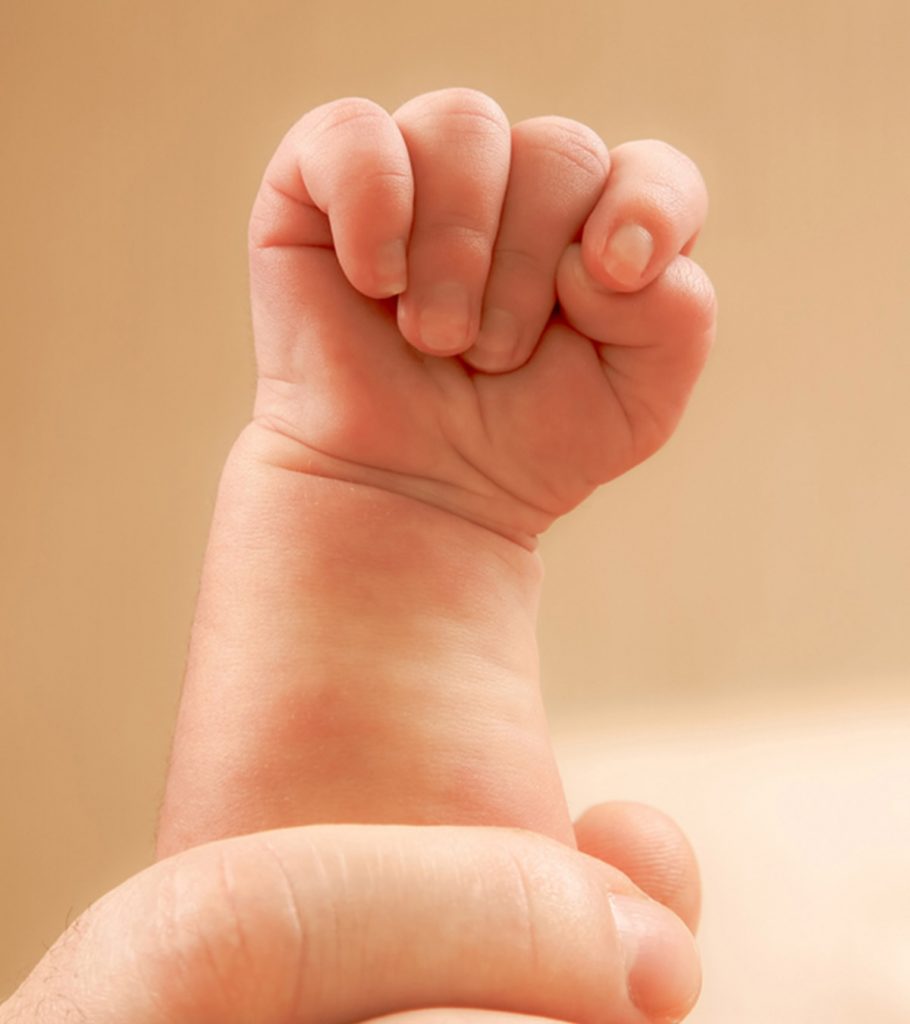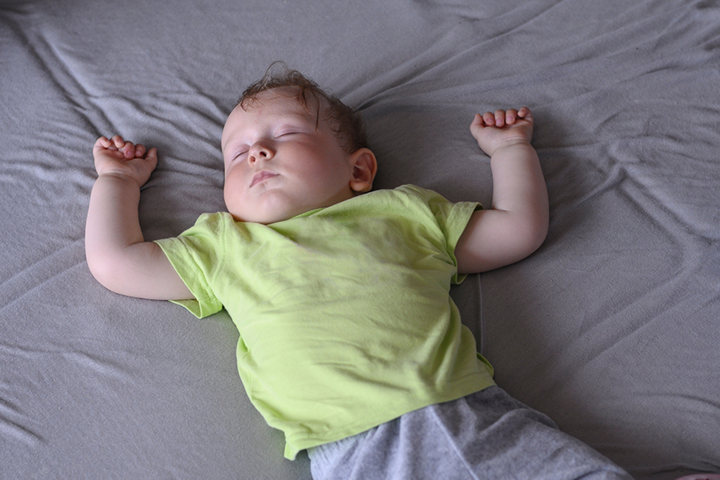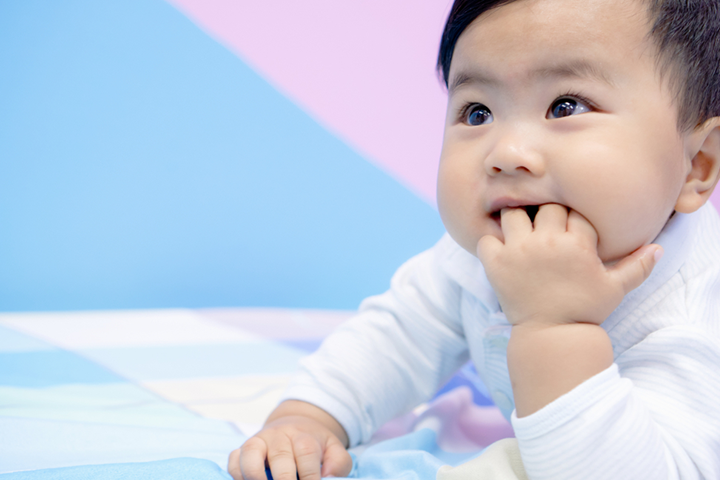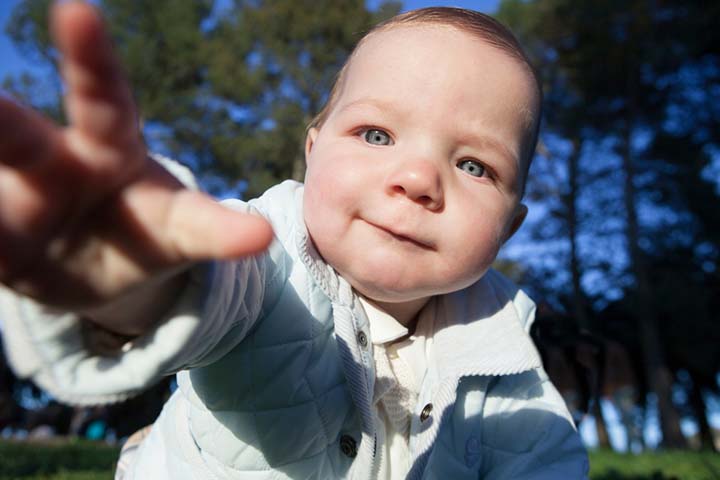It may be troubling seeing your baby clenching their fists practically all of the time, even though you want them to hold on to toys or your fingers.
Usually, babies under six months hold their fists clenched most of the time. However, if a baby aged more than six months does so, it might be a cause for concern and necessitate medical care.
Read on to know more about the causes of clenched fists in infants, when you can expect your baby to unclench their fists to hold other objects, and why some newborns don’t clench their fists.
Why Do Babies Clench Their Fists?
Thepalmar grasp reflexiXAn involuntary reflex that causes babies to fold their fingers around an object upon pressure or touch.is the reason behind clenched fists in fetuses and babies younger than six months. This primitive reflex is a normal part of a baby’s development and disappears after the age of six months as the baby’s brain matures. You can visualize this when you stroke the back of your little one’s palm and they immediately try to grip your finger with their small fingers. Once you try to let go of the hand, they will slowly release that tight grip (1).
Some anecdotal beliefs state that clenched fists indicate stress or hunger in babies. However, this is a normal reflex that may have been required for survival in the evolutionary past. You may look for other signs to understand stress or hunger in babies.
Spastic cerebral palsy or brain damage may cause the persistence of palmar grasp reflex beyond the age of six months. Brain damage may indicate shaken baby syndromeiXBrain injury resulting from shaking the baby forcefully and vigorously, also considered child abuse.. Consult a pediatrician for necessary evaluation. Early identification and interventions could improve the quality of life and may prevent severe dysfunctions (2).
Why Do Babies Clench Fists While Feeding?
It is not just while feeding, but while sleeping, playing, or any other time that an infant under six months of age may clench their fists due to the primitive grasp reflex.
Clenched fists are normal until six months of age, and it may not be a useful method to understand your baby’s hunger. You may look for other feeding cues, including (3):
- Lip licking
- Keeping hands in the mouth
- Arm and leg movements
- Sucking sounds
- Looking towards you
- Crying
Why Do Some Babies Not Clench Their Fists?
Clenched fists in babies are seen from the fetal stage to six months after birth. The palmar grasp reflex usually appears from the 16th week of gestation.
The following reasons may cause babies not to clench their fists.
- Amniotic band syndrome: Absence of clenched fists in fetal life may indicate amniotic band syndrome. This is a rare condition where strands or bands of amniotic sac wrap the fetus’ fingers, toes, or any other part of the body. The severity of amniotic band syndrome depends on the affected location and the tightness of the wrap. Milder wraps can be surgically removed after birth without causing any physical damage. However, tighter wraps may permanently damage the fingers (4).
- Peripheral nerveiXA network of nerves that lie outside the brain and spinal cord. injuries: Weak palmar grasp reflex or unclenched fists before the age of six months could occur due to injuries of the peripheral nerve roots, plexusiXA branching bundle of interlacing nerves and vessels., and spinal cord (2). Babies who have peripheral nerve damage due to complications in labor may develop unclenched fists.
- Floppy babies: In this condition, the baby’s muscle tone is lost due to congenital reasons. The baby feels limp like a rag doll when carried in your arms.
Appropriate prenatal care and cesarean sections may help reduce the risk of peripheral neuropathyiXCondition where the peripheral nerves are damaged.. You may discuss with your obstetrician to choose the right method of delivery to avoid birth injuries.
When Should Babies Unclench Their Fists?
The baby will gradually begin grasping, holding, and releasing objects with their tiny fingers as the reflex fades. Babies do this on their own as their little brain matures. Unclenching of fists indicates a maturation of higher motor centers of the brain and development of voluntary motor functions (5) (2).
What if a three-month old baby doesn’t unclench their fist even momentarily?
Then you should approach your pediatrician. Persistence fist clenching without even a transient opening may point to some serious condition like spasticityiXA condition where speech and movement are hampered due to rigid or stiff muscles..
Often, babies open up their fists a little later than expected. You need not worry as it is normal. Going through developmental milestones later than others is not something that should bother you, as it takes time for some babies to cope with the changes they notice within themselves. If your baby’s clenched fists remain the same beyond six months of age, you should consult the baby’s pediatrician. It may indicate an issue that needs to be given immediate attention and starting treatment as early as possible can be beneficial.
Key Pointers
- The palmar grasp reflex causes the fetuses and babies under six months to keep their fists clenched most of the time.
- Unclenching of fists indicates proper neuromotor development enabling babies to hold and grasp objects.
- The persistence of clenched fists beyond six months could indicate an underlying neurological issue. Talk to your pediatrician if your baby keeps its fists clenched or doesn’t try to grasp objects or items even after six months.













